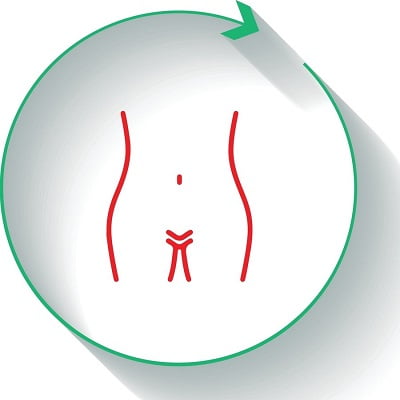
In recent years, the popularity of intimate surgeries has been on the rise as people become more aware of and concerned about their physical appearance and sexual satisfaction.
Intimate surgery, also known as cosmetic genital surgery or genital rejuvenation, refers to a range of surgical procedures aimed at altering the appearance or function of the genitalia. While these surgeries offer potential benefits, it is crucial to understand both the advantages and risks associated with them.
In this blog, we will explore The Benefits and Risks of Intimate Surgery, helping you make an informed decision if you are considering such a procedure. So, take a moment and read the following details.
Benefits of Intimate Surgery:
Enhanced Self-Confidence and Body Image:
One of the primary benefits of intimate surgery is the potential to improve self-confidence and body image. Many individuals may feel self-conscious or unhappy with the appearance or functionality of their genitalia, leading to decreased self-esteem and a negative impact on their intimate relationships. Intimate surgeries can address these concerns, helping individuals feel more comfortable and confident in their bodies.
Correcting Functional Issues:
Intimate surgeries can also correct functional issues that may cause discomfort or pain during sexual activity. Procedures such as labiaplasty, vaginoplasty, or clitoral hood reduction can alleviate physical discomfort, improve sexual function, and enhance pleasure for both partners. These surgeries aim to restore or enhance genital aesthetics while maintaining or improving sexual sensitivity.
Treating Medical Conditions:
Certain medical conditions, such as vaginal atresia, vaginal agenesis, or intersex conditions, may require intimate surgeries for treatment and to improve overall health and quality of life. These surgeries can help restore the normal anatomical structure, improve sexual function, and alleviate associated psychological distress.
Post-Pregnancy Restoration:
Childbirth can have lasting effects on a woman’s body, including changes to the vaginal area. Intimate surgeries like vaginal rejuvenation or perineoplasty can help restore tightness, tone, and elasticity to the vaginal muscles. This can address issues such as urinary incontinence, improve sexual satisfaction, and enhance post-pregnancy recovery.
Risks of Intimate Surgery:
Surgical Complications:
As with any surgical procedure, intimate surgeries carry inherent risks such as infection, bleeding, scarring, and adverse reactions to anaesthesia. It is crucial to choose a qualified and experienced surgeon and undergo a thorough evaluation to minimize the risks associated with the surgery.
Dissatisfaction with Results:
While intimate surgeries aim to improve the appearance and function of the genitalia, there is a possibility that the outcome may not meet the patient’s expectations. Unrealistic expectations or miscommunication between the patient and surgeon can lead to dissatisfaction. It is essential to have open and honest discussions with the surgeon about the expected results and limitations of the procedure.
Changes in Sensation:
Intimate surgeries have the potential to affect sensation in the genital area. While some procedures aim to enhance sexual sensitivity, there is a risk of temporary or permanent numbness or altered sensation. This can impact sexual pleasure and satisfaction. It is crucial to discuss these potential risks with the surgeon before deciding to undergo the surgery.
Psychological Impact:
Undergoing intimate surgery can have psychological implications. It is essential to consider the underlying reasons for desiring the surgery and ensure that expectations are realistic. Some individuals may have body dysmorphic disorder (BDD), a mental health condition characterized by an excessive preoccupation with perceived flaws in one’s appearance. In such cases, intimate surgery may not provide the desired psychological relief, and therapy or counseling may be more appropriate.
The Bottom Line!
Intimate surgery can offer various benefits, including improved self-confidence, correction of functional issues, treatment of medical conditions, and restoration after childbirth. However, it is crucial to understand and weigh the risks associated with these procedures.
Surgical complications, dissatisfaction with results, changes in sensation, and potential psychological impact are important considerations. Consulting with a qualified surgeon, discussing expectations, and understanding the limitations of the surgery are crucial steps in making an informed decision.
Ultimately, the decision to undergo intimate surgery should be based on individual needs, desires, and realistic expectations, ensuring that the potential benefits outweigh the risks involved.


